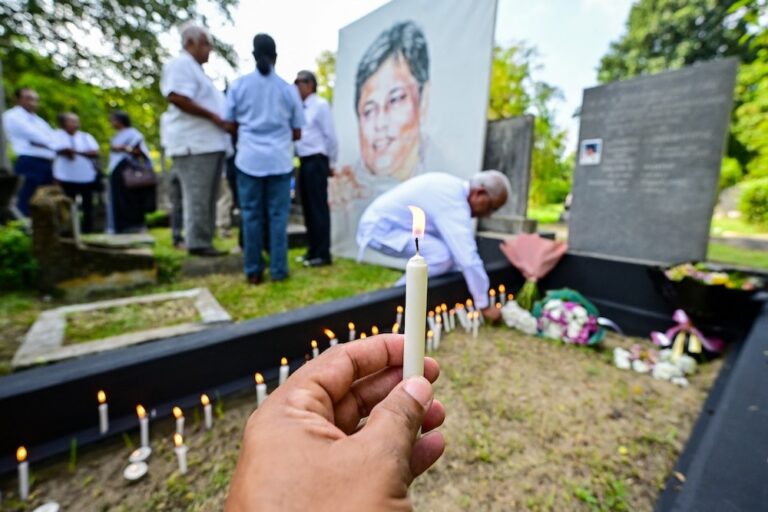(FMM/IFEX) – The following is an FMM press release: Journalist student/part-time journalist shot dead in Jaffna Nilakshan Sahapavan, aged 22, a student journalist at the Jaffna Media Resource Training Centre (MRTC) and a part-time journalist, was shot dead on the morning of 1 August by unidentified gunmen. The men, on motorcycles, woke Sahapavan at his […]
(FMM/IFEX) – The following is an FMM press release:
Journalist student/part-time journalist shot dead in Jaffna
Nilakshan Sahapavan, aged 22, a student journalist at the Jaffna Media Resource Training Centre (MRTC) and a part-time journalist, was shot dead on the morning of 1 August by unidentified gunmen. The men, on motorcycles, woke Sahapavan at his family home in Kokuvil, Jaffna, around 4:00 a.m. (local time) and shot him, injuring him seriously. Kokuvil, just 3 miles from Jaffna city, is heavily guarded by the Sri Lankan military; the shooting took place during curfew hours.
Sahapavan succumbed to his injuries at Jaffna General Hospital few hours later. Saddened by his untimely death and angered by this dastardly act, the FMM demands an immediate, open and impartial inquiry into the killing of journalist Nilakshan Sahapavan.
Sahapavan is the eighth media worker killed in Jaffna since May 2006. The International Press Freedom Mission which visited Sri Lanka in June 2007 named Jaffna as one of the worst places to be a journalist in the world today.
MRTC is affiliated to University of Jaffna and was established with the support of UNESCO. For the last two years, it has been supported by Danida of Denmark. MRTC works in close association of Sri Lanka Press Institute (SLPI) of Colombo.
During the last two weeks of July 2007, Sahapavan was in Colombo with MRTC students on an internship; he returned to Jaffna on 30 July FMM had a discussion on the current media situation with visiting student groups including Sahapavan on 25 July.
FMM is disappointed that no media worker or journalist killing been investigated to a completion by the government of Sri Lanka. Viewing the prevailing culture of impunity as an indirect approval of “the killing of the messenger” in Sri Lanka today, FMM holds the government accountable for its failure to carry out to completion so much as a single investigation into a killed journalist.


